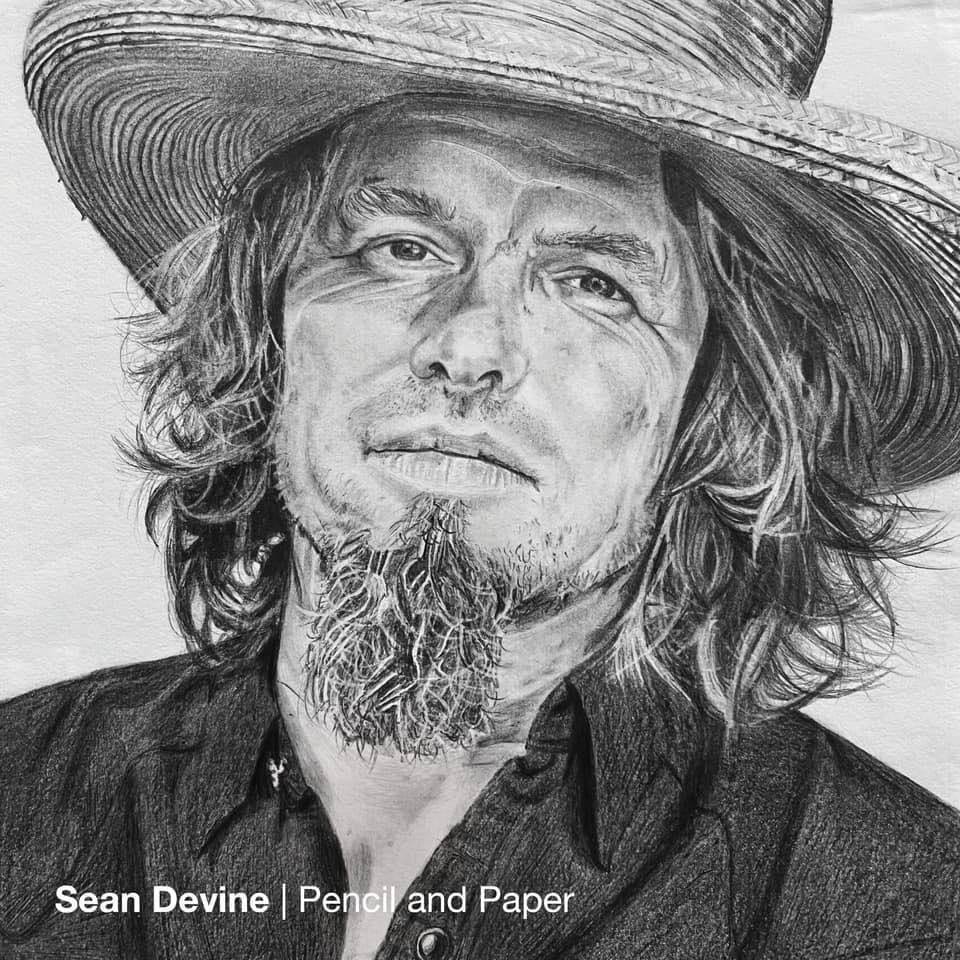Sean Devine follows 2021’s thoughtful Here For It All with Pencil and Paper, an EP of rolling demos recorded in the Treasure State Troubadour’s home studio. Across half a dozen cuts, Devine continues his introspective journey, allying with vulnerability and burning honesty at a point when most men would settle for opinions and mistakes cultivated for decades. There’s nothing subtle or contrived– these songs are exposed and marked by the sound of creaking wood, twisting leather, and the commitment of a songwriter still seeking the best version of himself.
“How Can I Love You This Time?” is a highlight out of the gate, confronting how we perceive the needs of those we care for in relation to our own wants. Devine takes a powerful step back as a son, sibling, parent, and partner shedding his own preconceptions of what it means to love and be loved. At times a challenge to toxic masculinity– both learned and perpetuated– Sean also confronts the fears and traumas we use as excuses to build walls, eschewing the sledgehammer to ease each brick loose by hand.
As much as the physical, “Making Love” addresses the emotional aspects of keeping a marriage alive. Devine sings, “Maybe we let it go too easy sometimes when it’s hard,” realizing, perhaps accountable for the first time, that perfection is a foolish paragon and that real love isn’t always storybook or easy. Like songwriting, the reward can be in the work, but closed eyes still reveal desires and regrets that haunt.

Since the United States Supreme Court’s June overturn of Roe vs Wade, the 1973 decision protecting a woman’s right to choose an abortion, the issue (always a molten one come election time) was destined to be a polarizing and potentially party-enabling component of the upcoming 2022 mid-terms. Devine’s “You Live In This World Too” attempts to bring the rhetoric back down to earth, positing situations that question any zero exception policies with the not-so-subtle reminder that for a certain small percentage of the populace, the option will always remain. At times vicious, Sean makes the case that no matter actual or hypothetical, choice is paramount.
“Halfway To Hell (Exit 333)” evokes Fred Eaglesmith’s tragic trucker and locates Devine on the highway, watching the odometer and the darkness pass as well as around the fire at home, contemplating one direction of eternity. On the upside, Sean finds and offers peace and purpose through the gospel-tinged “Bluebird Of Love”, singing “I only try to write them as they come / And when you feel their true / That feeling is for you / When the bluebird finds you too / My work is done.”
Another highlight, the final “Presence Of The Lord” is redemptive, open to forgiveness, and crafted around a litany of pitfalls calcified into history but not necessarily ordained as fate. Possibly speaking to the child coming of age and hoping– like all parents– that his own tragedies might provide a safer route forward (impossible and futile, yet we endeavor as our parents before us), Devine is more likely reminding himself that wisdom resists the absolute. It’s the saddle up and ride anyway kind of courage, not the last ride but a new one where the end goal isn’t to stop making mistakes– it’s to stop making the same ones.
